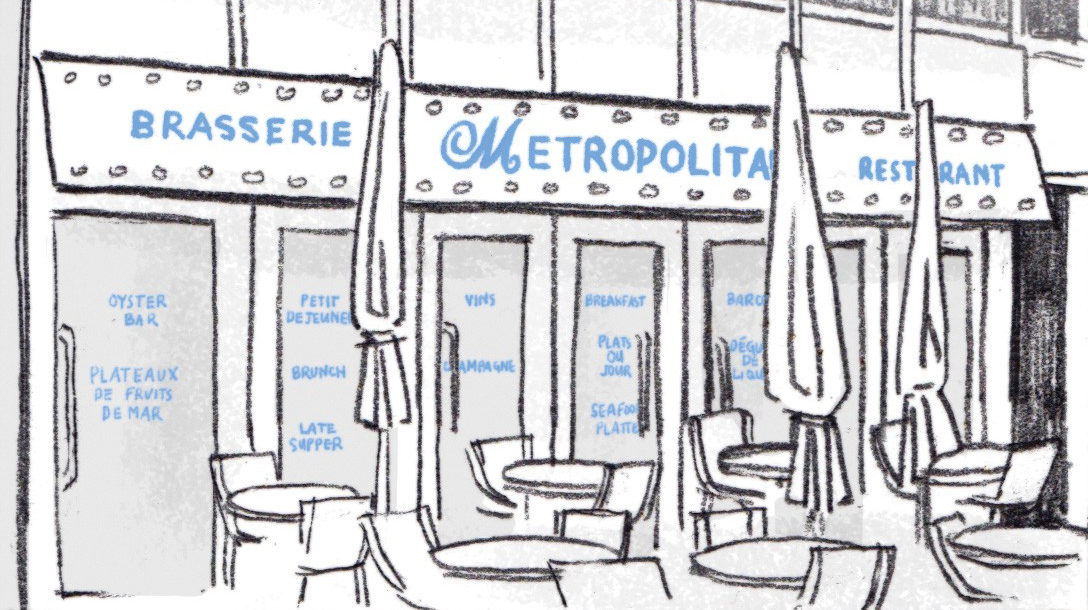Parliament Hill is no Fleet Street, but the adjacent Centretown neighbourhood comes closest to capturing its spirit. Its streets are dotted with bars famous for hosting Ottawa’s political class, from low-level staffers to the occasional prime minister, who’ve made Brixton’s British Pub (historically NDP), D’Arcy McGee’s Irish Pub (historically Liberal), and Métropolitain Brasserie (Conservative after 2006) their post-caucus, post-event, and post-party homes. Those party lines are blurrier now — split generationally as much as ideologically — but it matters little. Party-affiliated or not, the pubs are still filled with nattering politicos, which is reason enough for any political journalists drop in.
“Lord knows I spent a lot of nights in those places,” says Toronto Star political columnist Paul Wells. “I must’ve been at D’Arcy McGee’s mostWednesdays between 1997 and 2007.” Wells didn’t describe any surreptitious meetings, or tell of any manila envelopes passed in shadowy corners. (“I never carried a beer in one hand and a notepad in the other.”) Instead, he networked. Few MPs settle in Ottawa, he says, because they have to constantly go back to their constituencies to justify their re-election. Plus, for that handful of days in the capital, they typically don’t have a suite of domestic responsibilities that might otherwise keep them home. A simple and singular logic takes shape: “While they’re in Ottawa,” says Wells, “they might as well be at Brixton’s.”
Not every staffer and MP makes the rounds. Nor does every journalist, but it doesn’t hurt. Sit down with one well-known MP for the evening, Wells says, and you could meet 10 others over the course of a night: “Parliament Hill after dark is like a huge Air Canada departure lounge. Wander in, see whether the food’s any good. ‘Oh look, there’s so-and-so, where’ve you been?’”
So-and-so occasionally offers valuable insight. In 2011, Conservative staffers congregated at Hy’s, a noted Ottawa hangout, to celebrate the recently passed budget. It was celebratory, or at least was supposed to be.
“I was talking to some pretty senior Conservatives,” Wells says, “who were starting to despair of the whole Harper project.” They felt the latest budget was proof that Harper was as tax-and-spend as the Liberals. Instead of a rejoicing majority, Wells saw cracks forming in the Tory-blue facade. “That was the first sign that people who had signed on with Harper were starting to be dissatisfied.” Those stray comments reframed Wells’s view. It changed the questions he’d ask.
Absent these encounters, social rust grinds the machinery to a halt. After staking out a minority of Parliament seats in 2006, the newly minted PMO famously discouraged party members and staffers of a certain rank from frequenting the bar scene, and it hurt reporters. Vice News features editor Justin Ling says that dealing with staffers during the Harper years was nearly impossible.
“You couldn’t pick up the phone and talk to them,” he says. “You didn’t have a personal email address, you didn’t have a personal phone number. It was virtually impossible to get a hold of them because you had no rapport.” Ling’s list of contacts dried up.
“The best relationships I had in the Harper government were those folks who would come out and have a beer and talk to me.” Over pints, Ling says subjects ran the gamut from the government’s reasoning behind certain decisions, to their own frustration, to information off the record. Like Wells, Ling was able to trawl background noise to understand the behind-the-scenes politicking that informs and animates Parliamentary debate. On occasion, reporters can also simply ask, What the hell happened?
Debating the Fair Elections Act, Conservative MP Brad Butt claimed to have seen discarded voter information cards stolen out of the trash, handed over to an opponent’s campaign office, and ultimately used to commit voter fraud. His story was quickly debunked and widely reported, and Butt retracted the statement during debate a few weeks later. His office opted not to grant media access. Butt did, however, venture over to Brixton’s. That’s where Ling happened to run into him.
“We sat and had a great chat about why he said that,” says Ling. “You can go straight to the source. Brad Butt’s office refused every single interview request, every single info request we sent for a week, and I just happened to catch him over a pint at Brixton’s.” The PR apparatus was in full swing, the brick wall was up, and comment was not on offer. Happenstance, though, rounded out Ling’s understanding of what transpired, why, and — often lost in the thick of political reporting — how the actors felt.
The meeting was impromptu and innocuous, but it enriched Ling’s understanding of what transpired. Democracy works, but works best when it’s lubricated.
